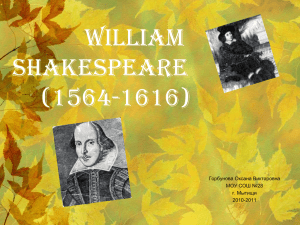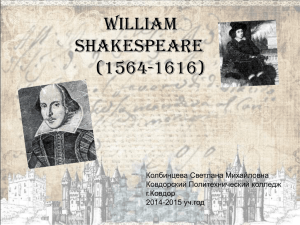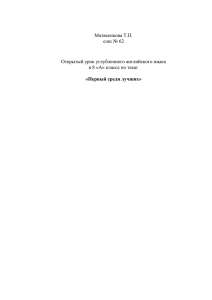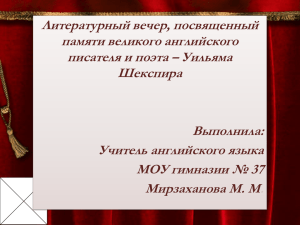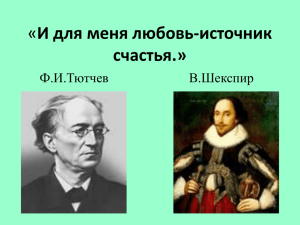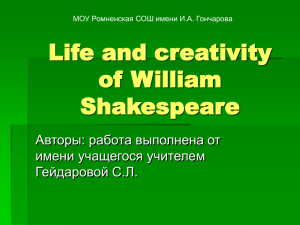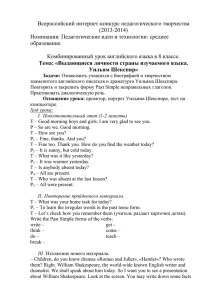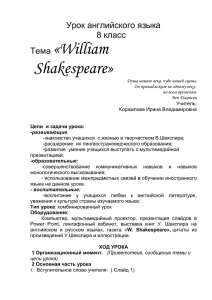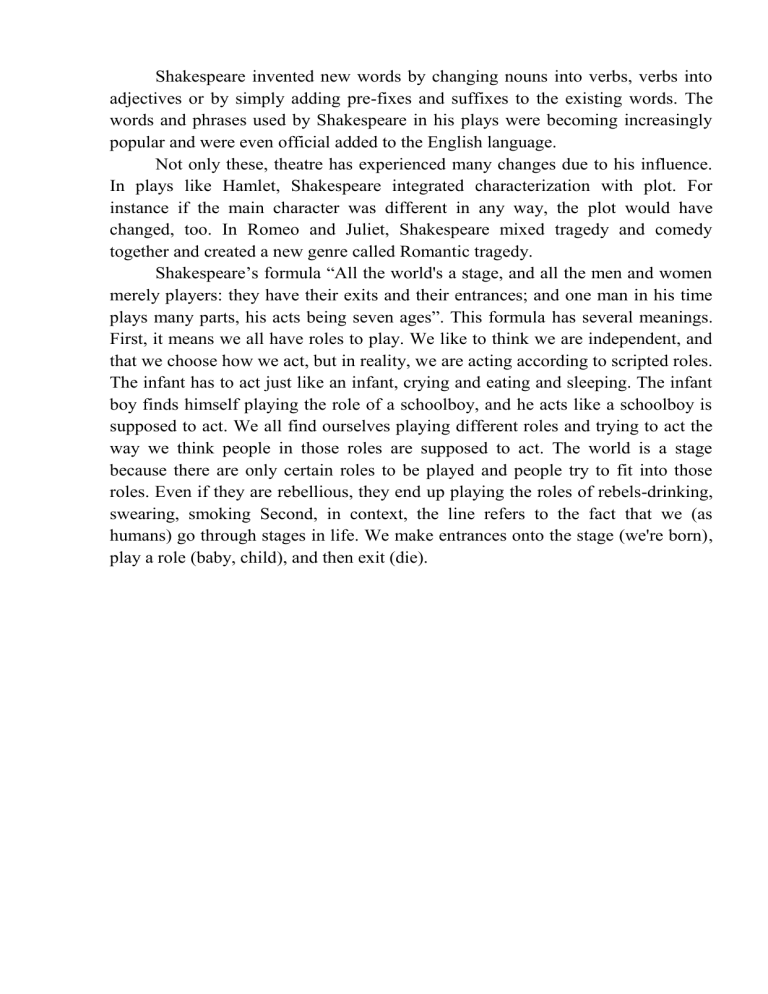
Shakespeare invented new words by changing nouns into verbs, verbs into adjectives or by simply adding pre-fixes and suffixes to the existing words. The words and phrases used by Shakespeare in his plays were becoming increasingly popular and were even official added to the English language. Not only these, theatre has experienced many changes due to his influence. In plays like Hamlet, Shakespeare integrated characterization with plot. For instance if the main character was different in any way, the plot would have changed, too. In Romeo and Juliet, Shakespeare mixed tragedy and comedy together and created a new genre called Romantic tragedy. Shakespeare’s formula “All the world's a stage, and all the men and women merely players: they have their exits and their entrances; and one man in his time plays many parts, his acts being seven ages”. This formula has several meanings. First, it means we all have roles to play. We like to think we are independent, and that we choose how we act, but in reality, we are acting according to scripted roles. The infant has to act just like an infant, crying and eating and sleeping. The infant boy finds himself playing the role of a schoolboy, and he acts like a schoolboy is supposed to act. We all find ourselves playing different roles and trying to act the way we think people in those roles are supposed to act. The world is a stage because there are only certain roles to be played and people try to fit into those roles. Even if they are rebellious, they end up playing the roles of rebels-drinking, swearing, smoking Second, in context, the line refers to the fact that we (as humans) go through stages in life. We make entrances onto the stage (we're born), play a role (baby, child), and then exit (die).
